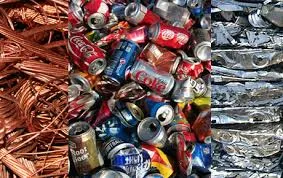

Dec . 13, 2024 03:13 Back to list
The Importance of Scrap Metal Recycling Plants
Scrap metal recycling plants play a critical role in today's economy and environmental landscape, transforming discarded metal into usable resources through innovative processes. With the rapid advancement of industrialization and urbanization, these facilities have become essential in conserving natural resources, reducing the environmental impact, and promoting sustainability.
Understanding Scrap Metal Recycling
Scrap metal refers to waste metal that can be reprocessed to create new products. This can come from a variety of sources, including manufacturing waste, old automobiles, construction debris, and obsolete machinery. The recycling process usually involves collecting, sorting, shredding, and melting the metal, which is then refined to produce new, high-quality metal products.
The main types of scrap metal are classified into two categories ferrous and non-ferrous metals. Ferrous metals, such as iron and steel, contain iron and are typically magnetic. Non-ferrous metals, such as aluminum, copper, and brass, do not contain iron and are generally non-magnetic. Both types of metals are crucial in various industries, including construction, automotive, and electronics.
Economic Benefits
One of the most significant benefits of scrap metal recycling is its positive impact on the economy. Recycling metal reduces the need for raw material extraction, which is often costly and environmentally damaging. By utilizing recycled scrap metal, industries can save on production costs and energy consumption. According to estimates from the Institute of Scrap Recycling Industries (ISRI), recycling metal creates numerous jobs in the recycling sector and stimulates economic growth.
Moreover, many countries are increasingly implementing regulations and incentives aimed at boosting recycling efforts. These policies not only encourage manufacturers to use recycled materials but also support the development of cleaner technologies in scrap processing. The economic circularity established through recycling enhances the resilience of local economies.

Environmental Benefits
The environmental advantages of scrap metal recycling plants are profound. Recycling metals conserves natural resources, reduces greenhouse gas emissions, and minimizes waste. The process of extracting new metal from ores—involving mining, transporting, and refining—is energy-intensive and contributes significantly to pollution. In contrast, recycling metals uses up to 95% less energy, which substantially lowers carbon emissions and helps combat climate change.
Furthermore, recycling metal helps divert waste from landfills, where these materials can take hundreds of years to decompose. Scrap metal recycling plants ensure that valuable materials are not wasted, thereby promoting responsible waste management practices that benefit the environment.
Challenges in the Industry
Despite the benefits, the scrap metal recycling industry does face several challenges. Variability in scrap metal quality, fluctuating global market prices, and competition from lower-cost alternatives present ongoing hurdles. Moreover, recycling plants must comply with stringent environmental regulations and safety standards, which can increase operational costs.
Technological advancements, such as improved sorting and processing techniques, are helping to address some of these challenges. Investments in automation and artificial intelligence can significantly enhance the efficiency and profitability of recycling operations. Additionally, public awareness campaigns play a vital role in promoting responsible recycling practices among consumers, encouraging them to bring their metal waste to recycling plants.
Conclusion
Scrap metal recycling plants are crucial components of a sustainable future. They provide economic benefits by lowering production costs and generating employment, while also playing a vital role in conserving resources and protecting the environment. As the world continues to grapple with resource scarcity and environmental degradation, the importance of recycling cannot be overstated. By embracing and investing in scrap metal recycling, we can create a cleaner, greener, and more sustainable future for generations to come. As individuals, being mindful of our metal waste and supporting recycling initiatives is a step towards creating a circular economy where materials are reused, and waste is minimized.
Latest news
Troubleshooting Common Eddy Separator Problems
NewsJul.04,2025
The Role of Metal Recycling Plants in Circular Economy
NewsJul.04,2025
The Impact of Recycling Line Pickers on Waste Management Costs
NewsJul.04,2025
Safety Features Every Metal Shredder Should Have
NewsJul.04,2025
How Industrial Shredders Improve Waste Management Systems
NewsJul.04,2025
How Cable Granulators Contribute to Sustainable Recycling
NewsJul.04,2025